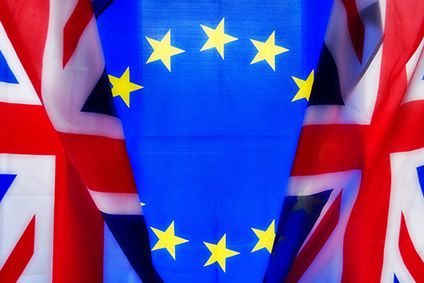
Food and drink bodies across the UK and European Union have outlined areas they would like to see addressed in a Brexit trade deal being thrashed out, with rules of origin a key component.
Institutions such as the British Meat Packers Association and the European Snacks Association have penned a letter to Michel Barnier, the European Commission’s Task Force head, and his UK counterpart David Frost, along with government ministers on both sides, noting concerns about “the damaging impacts rules of origin could have for our highly-integrated supply chains”.

Discover B2B Marketing That Performs
Combine business intelligence and editorial excellence to reach engaged professionals across 36 leading media platforms.
Such rules are often overlooked in trade negotiations because of the focus on reducing tariffs, they wrote. “If these rules are not set at appropriate levels or designed with sufficient flexibility to reflect the varied needs of food and drink supply chains, our industry will be negatively impacted.”
The letter pointed out that “any transformation that brings about a change in tariff classification should be considered sufficient to confirm origin to help provide greater simplicity and clarity for businesses seeking to access preferential tariffs”.
They are also calling for a 10% tolerance margin by value for “non-originating inputs in any exported good without impacting on its originating status”. And what the industry associations term a “full bilateral and diagonal cumulation between the EU, the UK and shared preferential trade partners” is also being sought to protect valued supply chains.
A joint EU/UK exemption for all originating imports from least developed countries “should not be inadvertently disadvantaged by the UK’s decision to leave the EU”, they added.

US Tariffs are shifting - will you react or anticipate?
Don’t let policy changes catch you off guard. Stay proactive with real-time data and expert analysis.
By GlobalDataThe trade bodies said both sides are eager to maintain “high” food standards in the transition negotiations following the UK’s official departure from the EU.
“We want to maintain our high food standards after 1 January 2021, and with the right trade deal, our members can maintain these essential cross-border, interdependent European supply chains,” they wrote. “It is strongly in all our interests – businesses, governments and consumers – to promote continued trade and to minimise avoidable disruption wherever possible. This will be essential to support the post-Covid-19 economic recovery.”





